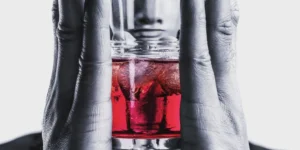Your Story Can Transform Pain Into Healing And Connection
How can sharing personal experiences of addiction and mental health struggles foster connections and inspire others who are still facing similar challenges?
Why Talking About Recovery Still Makes People Angry
People love to say, “Speak up. Ask for help. Don’t suffer in silence.” But the moment someone actually opens their mouth and tells the truth about their addiction, the room stiffens. Eyes shift. People look away. Suddenly the same society that demands honesty becomes deeply uncomfortable when confronted with it. That tension is exactly why this topic needs to be dragged into the light.
Sharing your story shouldn’t be a politically correct performance or a neatly packaged moment of bravery fit for social media. It’s a raw act of defiance in a culture that prefers its addicts hidden, silent, and well-behaved. Telling your story forces stigma to look you in the eye. It exposes the reality most people would rather ignore: addiction is everywhere, and it isn’t limited to the caricatures people cling to. For many, speaking out becomes the first real step in taking power back from shame. But it also triggers reactions that reveal how deeply society still misunderstands what recovery actually looks like.
Why Vulnerability Isn’t Pretty or Comfortable
There is a romantic, Instagram-friendly idea that vulnerability is some kind of spiritual awakening. It’s not. Vulnerability is exposing the parts of yourself you’ve spent years trying to hide because you know exactly how harsh people can be. It’s telling the truth while your stomach is in knots, wondering if this is the moment people quietly back away from you.
This is why sharing your story is so difficult. Vulnerability isn’t a therapist’s couch and soft music. It’s messy. It’s awkward. Sometimes it’s met with silence. Sometimes you regret saying anything at all. But despite that discomfort, vulnerability carries more healing power than any motivational quote ever will. When you finally speak the truth, even if your voice is shaking, you stop performing for the world and start being real with yourself. And realness, not perfection, is where recovery actually begins.
The Hidden Cost of Silence
If silence were harmless, we could leave people to their privacy. But silence is one of the deadliest aspects of addiction. It keeps people isolated. It prevents them from asking for help. It convinces them they are the only ones failing, the only ones struggling, the only ones falling apart behind closed doors. Entire South African families have built their identities on silence, “Don’t talk about it,” “Keep it in the house,” “Other people don’t need to know our issues.”
This silence doesn’t protect anyone. It suffocates people who are already drowning. It keeps addiction alive by hiding it. It fuels relapse because no one can fight something they’re too ashamed to say out loud. It enables abuse, codependency, denial, and a cycle of secrecy passed down through generations.
Sharing your story is not just about connection. It’s about survival. When people know they’re not alone, the grip of addiction loosens just enough for help to break through.
It’s About Taking Back Control
There is a moment in recovery where you realise that silence has allowed addiction to control not just your behaviour but your identity. Staying quiet lets shame write your story for you. Telling your story, on your own terms, is how you take it back.
It’s not about dramatic confessions. It’s not about uploading emotional reels. It’s about naming what happened so it stops owning you. When you put your experience into words, it becomes organised, understandable, something you can look at rather than something that dominates you from the inside. You move from being acted upon to actively authoring your own narrative. That shift is powerful. It’s grounding. And most importantly, it makes recovery feel like something you’re steering instead of something that’s happening to you.
The Part Everyone Forgets
People imagine that telling the truth will bring hugs and understanding. Sometimes it does. More often, it doesn’t. Some people pull back. Some minimise your experience. Some pretend they didn’t hear you properly. Some react with judgement disguised as “concern.” And some become defensive because your honesty exposes their enabling, their denial, or their part in the dysfunction.
This is one of the hardest realities of recovery: telling the truth will unsettle the people who benefited from your silence. But discomfort is not a sign that you shouldn’t have spoken. It’s a sign that your voice has power. Your story forces people to confront what they’ve ignored, misunderstood, or chosen not to see. Not everyone will appreciate that, and not everyone is supposed to.
The Ripple Effect
Every recovery community has the same pattern: one person tells their story, and suddenly three others find the courage to speak. That’s not coincidence. Honesty is contagious. When someone goes first, everyone else realises the world won’t collapse if they open up too. You see this play out on social media all the time. Someone posts something raw and real, not polished or inspirational, just truthful. Within hours, the inbox is full. “I thought I was the only one.” “I’ve been struggling for years.” “Thank you for saying what I couldn’t.” Those private messages are proof: most people suffer in silence until someone gives them permission to stop.
Your story is often the thing that pushes someone over the edge, away from denial and toward the idea that help is possible. People reach out quietly long before they ask for help publicly. One honest story can save a life you will never know about.
The Danger of Turning Recovery Stories Into Feel-Good Content
There is a growing trend online where recovery gets reduced to feel-good soundbites and aesthetic posts. It sanitises the messy reality of addiction into a neat before-and-after storyline. But real recovery is not a highlight reel. It’s not a transformation montage. It’s work, setbacks, fear, responsibility, and rebuilding. When stories get polished until they sparkle, they stop being relatable and start being entertainment.
People in active addiction don’t need inspiration. They need honesty. They need someone who tells the truth about the shame, the cravings, the lying, the consequences, the hurt, the chaos. They need stories that show what recovery actually demands, not stories that pretend it’s just about mindset and motivation.
When you tell your story honestly, without sugarcoating or theatrics, you give people something real to hold onto.
When Sharing Becomes a Weapon
Not every story should be shared everywhere. There’s a difference between vulnerability and emotional dumping. There’s a difference between telling your story and venting unprocessed trauma onto strangers. Sharing becomes harmful when it’s impulsive, when the wounds are still bleeding, or when it drags people into situations they aren’t responsible for.
Healthy storytelling requires boundaries. Not every detail belongs online. Not every pain needs to be public. Some stories need time. Some need therapy before they’re spoken out loud. Some belong only with trusted people who know how to hold them without judgement or gossip. Sharing responsibly doesn’t dilute the truth. It protects the parts of you that aren’t ready to be exposed.
The Stories That Actually Change Lives
Not all recovery stories are equally powerful. The ones that cut through noise share certain qualities:
They focus on accountability, not excuses.
They acknowledge the impact on others.
They avoid dramatics and stick to truth.
They show how hard recovery is without romanticising it.
They don’t beg for sympathy or applause.
They don’t pretend the person is now a saint.
People don’t connect to perfection. They connect to honesty. The stories that change lives are the ones that feel real, human, flawed, and grounded.
Shame vs Connection
Social media is a battlefield when it comes to recovery stories. For every person who supports you, there will be another who mocks, judges, or acts threatened by your honesty. Shame thrives in this environment. But so does connection. Private groups, community pages, and recovery forums have become lifelines for thousands of South Africans who don’t have support at home.
The online world is often the first place someone whispers the truth about their addiction. For many, it’s safer than speaking to family or friends. And in a country where mental health resources are scarce, those digital spaces become vital forms of community.
The key is understanding when sharing online is empowering, and when it becomes risky. Connection is the goal. Validation is not.
Why Your Story Might Save Someone You’ll Never Meet
Most people don’t realise how far their story travels. A single honest post can reach someone scrolling at midnight, someone hiding in their car, someone who hasn’t admitted their addiction to anyone yet. Your story becomes the mirror they’ve been too scared to look into. It interrupts their denial. It plants a seed: “If they can speak, maybe I can too.”
You might never meet the person who messages a counsellor because of something you wrote. But it happens every day. The ripple effect is larger than you think.
The Most Radical Part of Sharing Your Story
Addiction thrives on secrecy. Shame isolates people until they believe they’re unfixable. But the moment you speak the truth, even quietly, even in private, shame loses its grip. You stop being the person addiction defined you as. You become someone who tells the truth instead of hiding from it. That shift is life-changing.
Recovery is not built on silence. It’s built on honesty, accountability, connection, and the refusal to hide anymore.
Tell the Truth, Even If Your Voice Shakes
Sharing your story is not about being brave for the world. It’s about refusing to let addiction shrink your life into secrecy and shame. Some people won’t like your honesty. Some won’t understand it. That doesn’t matter. Telling your story opens space for healing, connection, and change, not just for you, but for the people watching silently, hoping someone goes first.
When one person tells the truth, others finally breathe. In a culture that still prefers addiction hidden in the shadows, speaking up becomes an act of resistance. So tell your story. Tell it honestly. Tell it responsibly. Tell it in a way that frees you and lights the path for someone else.
Because silence kills people. But stories save them.

The Three Stages of Alcoholism Most people don’t wake up and decide to become alcoholics.…

Alcoholism Is Not About Willpower And Never Was Alcoholism continues to be framed as a…

Johannesburg is in the province of Gauteng in the Highveld region of South Africa, a…